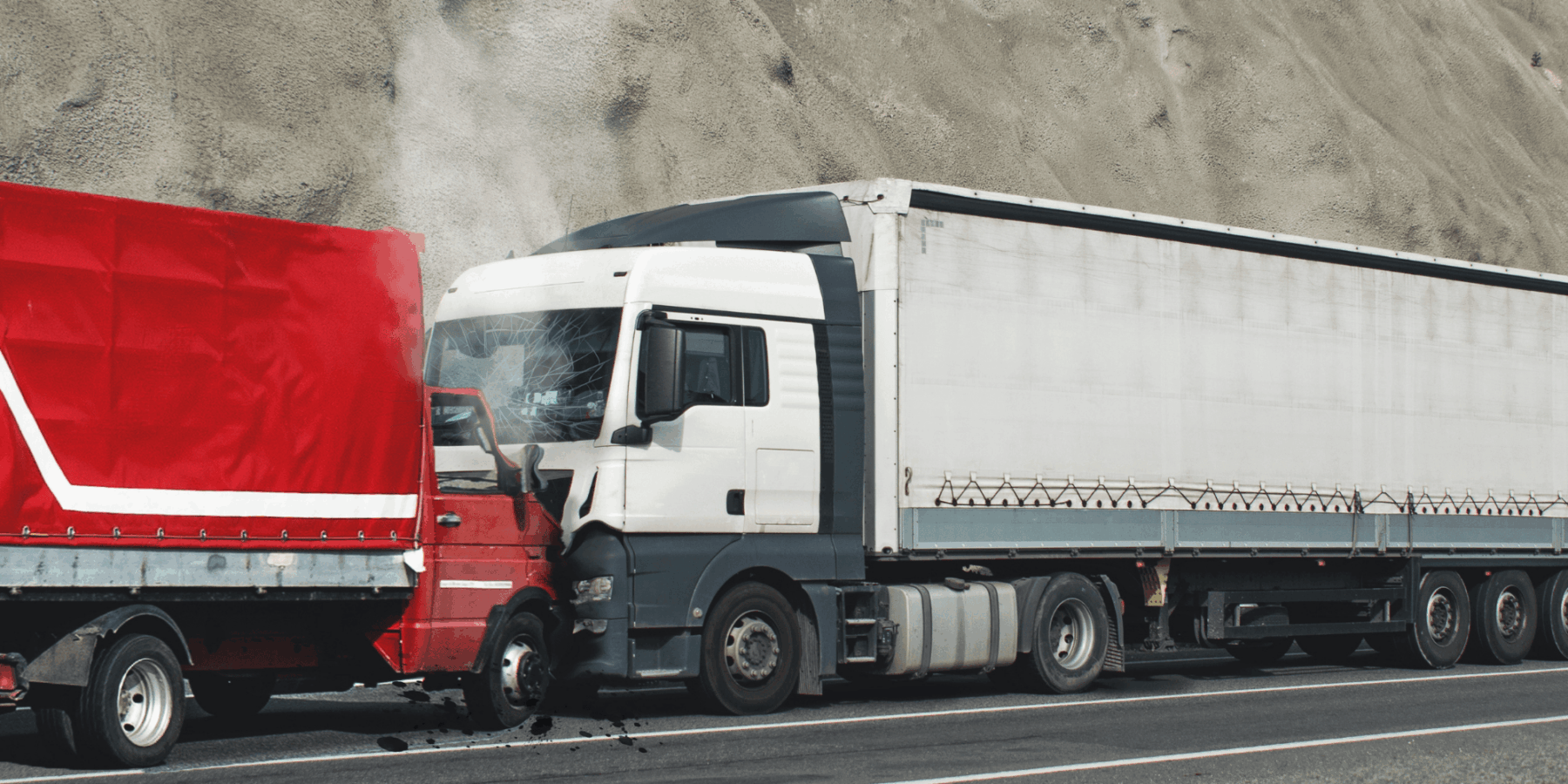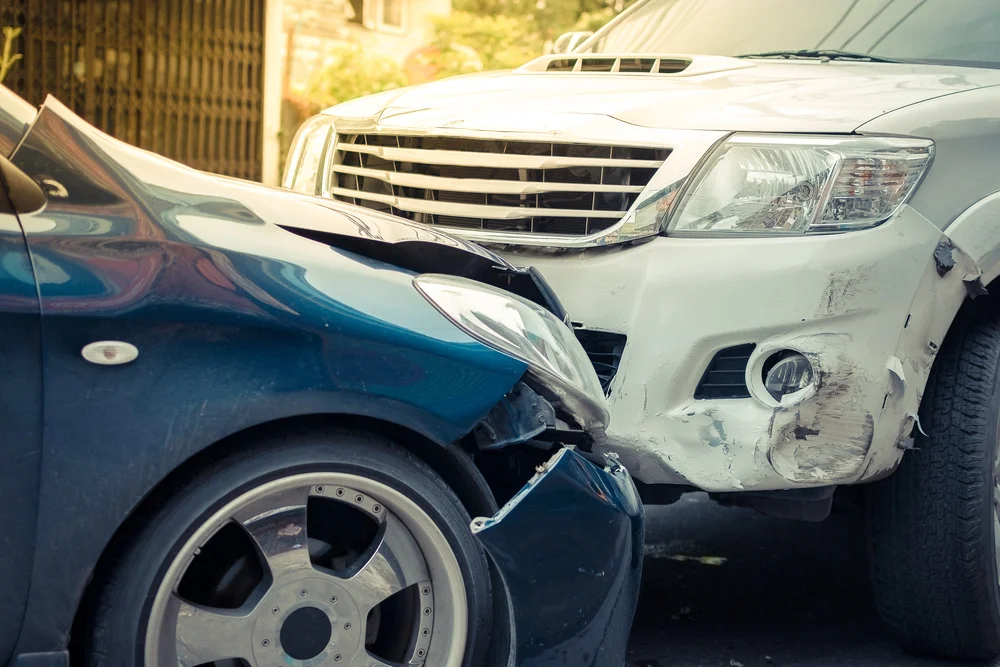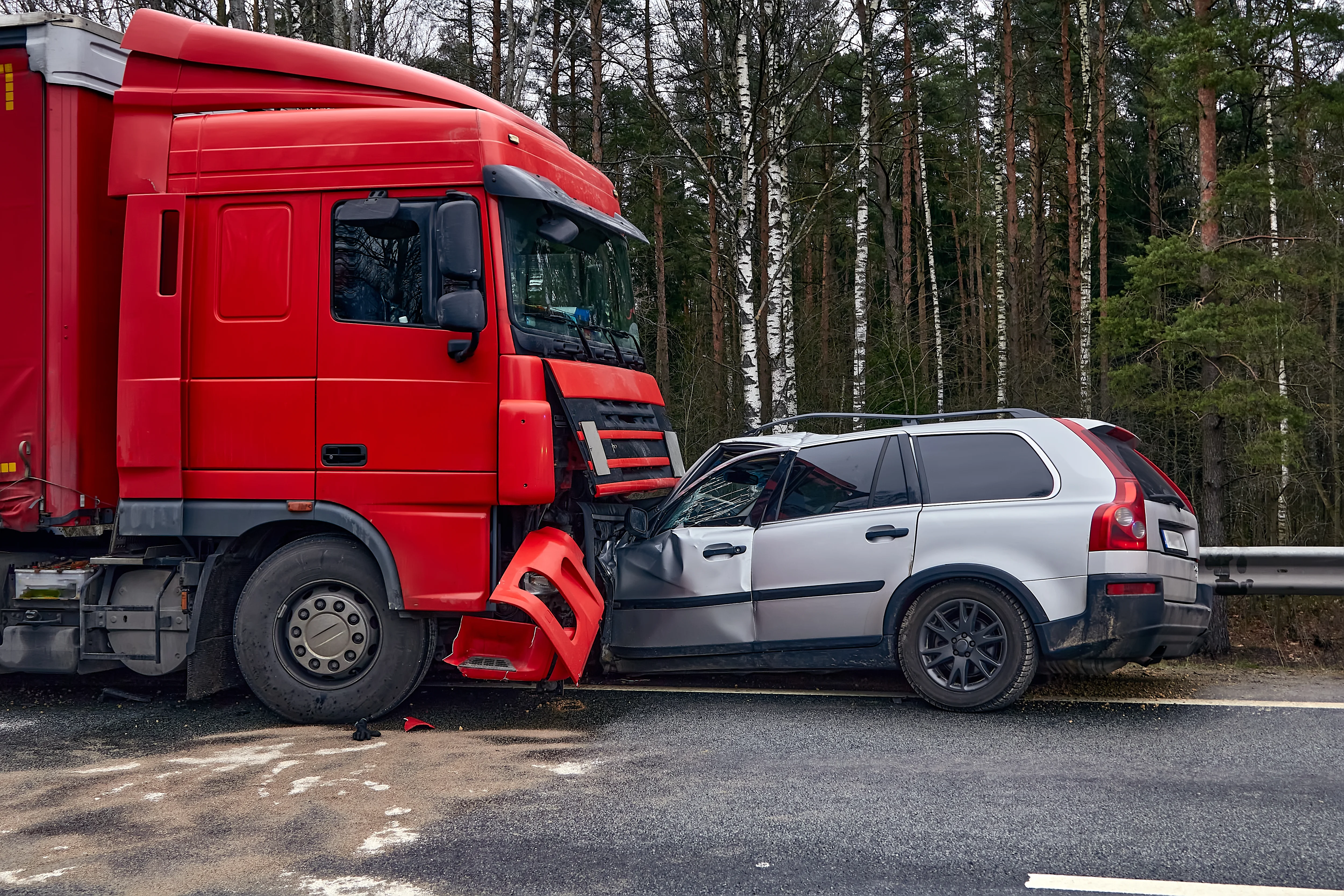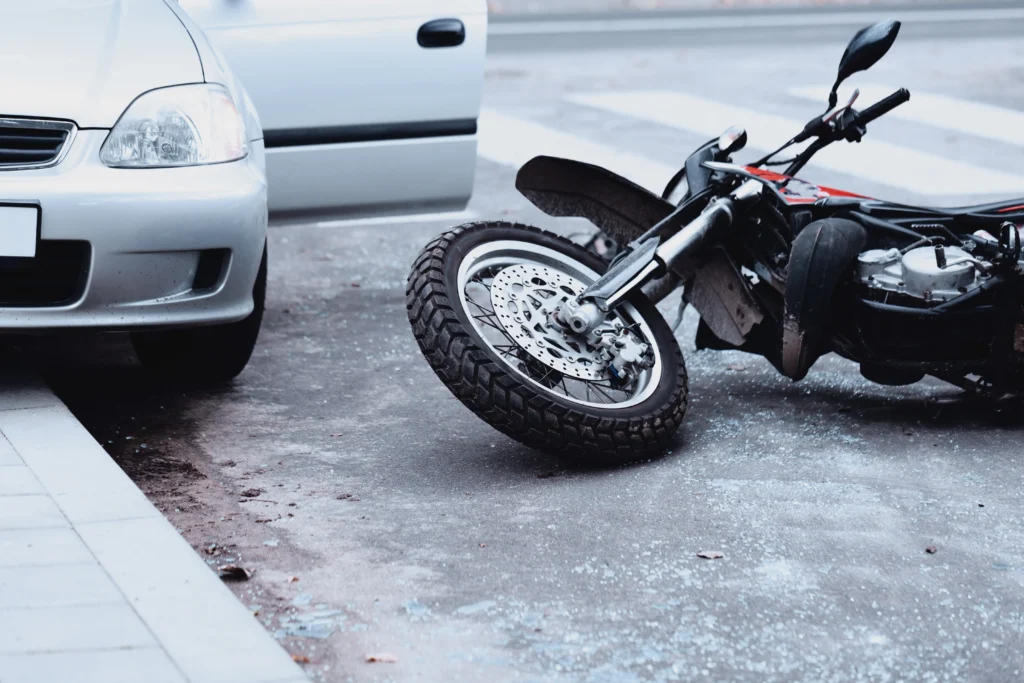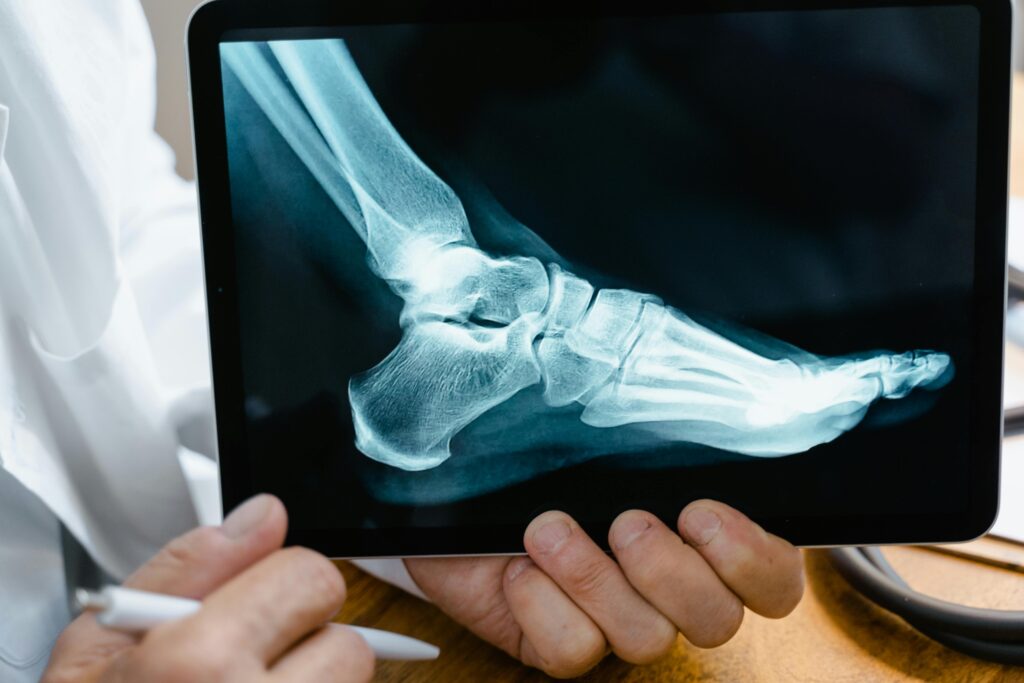Denver Truck Crash Lawyers Advocating for Local Victims
The Mile High City of Denver is one of the fastest growing cities in the country right now. Costs in highly populated states such as California have driven people out, and Colorado has become one of the states to benefit. With this increase in population, sadly, comes an increase in accidents. Commercial trucks make their way through Colorado constantly, which, with the increased population, means crashes will happen more often. The Federal Motor Carrier Safety Administration (FMCSA) confirms that large commercial vehicle collisions account for thousands of injuries and fatalities each year.
At Levine Law, we have expertise in helping Denver injury victims recover from negligent trucking companies. With millions recovered for our clients, we provide the experience and legal firepower to pursue justice after a crash involving an 18-wheeler, delivery rig, or commercial freight truck.
Our firm is deeply rooted in the community of Denver. From the Tech Center to the Highlands, we’ve walked with families and individuals throughout Colorado who’ve been injured in serious truck crashes. If you were injured in a semi-truck crash in Denver, call our firm to learn how we can fight for your recovery.
What Commonly Causes Denver Truck Accidents Near the Tech Center and I-70 Freight Corridors
Denver’s mix of mountainous terrain, congested freeways, and rapid commercial development creates a perfect storm for serious truck accidents. Routes such as I-70 near Golden, I-25 through downtown, and I-225 near the Denver Tech Center all serve as high-volume arteries for freight transportation. When truck drivers or logistics companies act negligently, the results can be devastating for Colorado motorists.
Fatigue-Induced Crashes by Overworked Drivers on I-25
Commercial drivers often work long shifts with limited rest, especially those moving goods between major hubs like downtown Denver, Colorado Springs, and Fort Collins. The steep grades and tight curves of I-25 only increase risk when driver alertness is compromised.
The Centers for Disease Control and Prevention warns that fatigue impairs drivers in ways similar to alcohol, significantly slowing reaction times. Truckers operating without adequate sleep are more likely to miss road signs, drift into other lanes, or completely fail to brake in time.
How Our Firm Investigates Hours-of-Service Violations
Our attorneys collect driver logs, black box data, and rest stop timestamps to build a timeline of the trucker’s activity leading up to the crash. This data helps determine whether the driver violated federal rest requirements or was otherwise operating unsafely due to fatigue. We also analyze dispatch records and employer communications to uncover pressure from the trucking company to meet unreasonable delivery deadlines.
Distracted Truck Drivers Create Hazards on Federal Boulevard and I-76
Modern truck cabs are equipped with numerous devices, including dispatch tablets, navigation systems, and smartphones. When drivers look away from the road for even a few seconds, tragedy can follow.
Intersections along Federal Boulevard, I-76, and Colfax Avenue are known hotspots for rear-end collisions involving trucks. These accidents frequently involve distraction-related behavior, such as texting, scrolling through GPS maps, or adjusting music systems.
Proving Negligence in Distracted Driving Truck Cases
To establish fault, we request call logs, texting records, and software usage reports from the trucking company or carrier. We may also subpoena dash camera footage or witness statements from nearby vehicles.
Speeding and Reckless Maneuvers on C-470 and E-470 Beltways
Speeding is a frequent factor in truck accidents along Denver’s C-470 and E-470 corridors. These roads are designed to handle large volumes of high-speed freight, but many drivers push the limits of safety, particularly when running behind schedule.
Heavy trucks require much more distance to stop than passenger vehicles. Excessive speed on these curved beltways often results in rear-end collisions or high-speed rollovers, especially when the roads are wet or snow-covered.
The Danger of Speeding with Heavy Loads
The Insurance Institute for Highway Safety confirms that truck braking distance increases significantly with added weight and speed. Our legal team works with crash reconstruction professionals to analyze tire marks, ECM (electronic control module) data, and highway surveillance footage. These tools help us demonstrate how fast the truck was moving before impact and how the driver failed to maintain control.
Cargo Shifts and Load Failures Near Peña Boulevard and DIA
When freight is poorly loaded or improperly secured, it creates a serious danger. Shifting cargo can cause the truck to jackknife or roll over, especially during lane changes or sharp turns near major transfer hubs like Denver International Airport.
In many cases, the truck driver is not responsible for loading the freight. Cargo companies and warehouse contractors may bear full or partial liability when load failures occur.
Investigating Third-Party Negligence in Freight Handling
We carefully review the bill of lading, inspection reports, and chain-of-custody records to trace who handled the cargo before the crash. Our firm often uncovers violations of FMCSA cargo securement regulations. We hold all negligent entities accountable, including third-party logistics providers and loading dock operators.
Mechanical Defects and Brake Failures in the Mountain Corridor
Trucks traveling through Denver from mountain towns like Vail and Glenwood Springs must safely descend steep passes before merging into urban highways. Brake failure on these routes can cause catastrophic crashes on I-70 as trucks barrel downhill with no way to stop.
Improper maintenance or failure to inspect vital safety systems contributes directly to many of these deadly outcomes. Fleet operators and maintenance contractors are legally responsible for ensuring every commercial truck on the road meets safety standards.
Legal Strategies for Mechanical Negligence Claims
We work with certified mechanical engineers to inspect the truck’s braking system, tires, suspension, and engine diagnostics. By referencing data from the National Transportation Safety Board, we show how equipment failures and ignored maintenance schedules contributed to the crash. Maintenance logs, repair invoices, and inspection gaps form a critical part of our liability argument.
Who Can Be Held Liable in a Denver Truck Accident Near Colfax or I-225
Determining liability in a Denver truck accident is often more complex than in a typical car crash. Commercial trucking operations involve multiple entities, each with legal obligations under state and federal law. From the driver to the carrier, from the loading company to the maintenance provider, any party that failed to act responsibly may be held financially accountable.
The National Law Review emphasizes that proper legal analysis must include contract relationships, regulatory compliance, and a forensic review of events leading up to the crash. In high-traffic areas such as I-225 near the Anschutz Medical Campus or along Colfax Avenue through central Denver, crashes involving semi-trucks, box trucks, or flatbeds often involve multiple layers of liability.
The Truck Driver May Be Directly Responsible for Unsafe Conduct
In many cases, the driver is the first point of liability in a truck collision. If the operator was distracted, fatigued, intoxicated, speeding, or otherwise violating traffic laws, they may be found directly negligent.
Truckers operating within Denver city limits must obey both state and federal safety standards. A driver who fails to meet these duties may be held liable for injuries, vehicle damage, and other losses sustained by victims.
How We Prove Driver Negligence in Colorado
Our attorneys gather a complete profile of the trucker’s actions, including cellphone records, drug and alcohol test results, dashcam footage, and logbook entries. If the driver exceeded legal driving hours, failed to rest properly, or ignored traffic signals, we present that evidence clearly and aggressively. In many cases, violations of CDOT’s Commercial Driver Regulations help reinforce a claim of individual fault.
The Trucking Company Is Often Liable for Training and Oversight Failures
The company that hired the driver may also bear liability. Commercial carriers are required to thoroughly vet and monitor their drivers. This includes verifying commercial licenses, enforcing rest policies, and maintaining internal safety programs.
When a company turns a blind eye to unsafe conduct or allows an unqualified driver behind the wheel, the law permits injury victims to file claims against the business directly.
Employer Negligence and Vicarious Liability
Colorado law permits respondeat superior, which allows injury victims to sue an employer for the acts of their driver if the crash occurred during a work-related task. We use employment files, dispatch logs, safety records, and internal policy manuals to show how poor oversight or pressure to meet deadlines contributed to your Denver truck collision.
The U.S. Department of Labor provides valuable insight into commercial transportation safety standards, many of which are routinely violated by companies seeking profit over protection.
Cargo Loading Contractors May Be at Fault for Shifting Freight
Freight that is not loaded evenly or securely can shift during transport, causing the truck to lose balance. These shifts often result in jackknifing, rollovers, or trailer detachment.
While the driver may not have loaded the cargo personally, the party responsible for loading can be held liable for any resulting damage.
Uncovering Load-Related Negligence in Denver Freight Operations
Our legal team investigates warehouse logs, shipment manifests, and FMCSA cargo compliance reports. We also interview logistics personnel and subcontractors to determine who handled the freight prior to the crash. In Denver’s busy warehouse zones near Quebec Street or Aurora’s logistics centers, cargo handling mistakes are an all-too-common cause of trucking disasters.
Vehicle Maintenance Providers May Be Liable for Equipment Failure
Trucks that are not regularly inspected pose a serious risk on Colorado highways. Faulty brakes, worn tires, damaged steering components, and electrical malfunctions are all common contributors to truck wrecks in Denver.
If a third-party maintenance shop or fleet service provider failed to perform critical inspections or repairs, they may be included as a liable party in your injury claim.
The Importance of Maintenance Logs and Inspection Records
Our attorneys subpoena fleet maintenance files, safety audits, and service orders to determine whether the truck was properly maintained prior to the collision. The National Highway Traffic Safety Administration provides guidelines for vehicle safety standards that can be used to show clear violations by repair shops or fleet managers.
Manufacturers and Parts Suppliers Can Be Held Accountable for Defects
If a crash resulted from a defective product such as a tire blowout, brake malfunction, or steering failure, the company that made or supplied that part may be responsible.
In these cases, liability may fall under product liability laws, which do not require proof of negligence but instead focus on design or manufacturing flaws.
When We Pursue Product Liability for Denver Truck Accident Claims
We consult with engineers and safety experts to review the defective part and assess whether it failed under ordinary use. We also use recall data and consumer complaints, often sourced from the National Highway Traffic Safety Administration Recalls Database, to support claims of manufacturing defects. These cases are essential in ensuring that dangerous parts are removed from the market and victims are fully compensated.
Life-Changing Injuries from Denver Truck Collisions Near Sloan’s Lake and Cherry Creek
Truck accidents across Denver often result in some of the most catastrophic injuries seen on Colorado roads. When a fully loaded tractor-trailer collides with a passenger vehicle, the violent impact places tremendous stress on the human body. Victims may face years of surgeries, physical therapy, lost income, and permanent disability.
Whether the crash occurred on Sheridan Boulevard near Sloan’s Lake or along Speer Boulevard approaching Cherry Creek, the damage can be physically and emotionally devastating. According to the American College of Surgeons, early medical intervention is critical to survival, but long-term outcomes depend heavily on legal action that secures the resources victims need to recover.
Traumatic Brain Injuries from I-70 Wrecks in the Foothills
The steep inclines and rapid descents west of Denver make I-70 a common site for high-speed truck crashes that involve violent head trauma. Victims may experience concussions, brain hemorrhaging, memory loss, or long-term cognitive deficits.
Symptoms may not appear immediately. Many victims suffer confusion, sleep disturbances, or mood changes that intensify in the weeks after the crash. Families often face emotional strain as a loved one struggles with personality changes or the inability to perform everyday tasks.
Medical Challenges Linked to Head Trauma
Traumatic brain injuries require ongoing imaging, neuropsychological evaluations, and specialized treatment. The National Institute of Neurological Disorders and Stroke outlines how even mild TBIs can lead to lasting disabilities, especially without immediate and consistent care. Our firm partners with local neurologists and neuro-rehab facilities in Denver to document the full scope of your injury and future care needs.
Spinal Cord Damage After Truck Collisions on Quebec Street
Collisions in high-traffic areas like Quebec Street or Monaco Parkway frequently result in powerful rear-end or T-bone impacts that damage the spinal cord. Victims often report severe back pain, limited mobility, or total loss of function in the lower extremities.
A spinal cord injury can derail a person’s career, independence, and quality of life. Even non-paralyzing injuries may require years of physical therapy, pain management, and home accessibility modifications.
Understanding Spinal Trauma and its Consequences
Spinal cord trauma is among the most expensive injuries to treat. The Christopher and Dana Reeve Foundation reports that lifetime costs for a young person with a complete spinal injury can exceed $4 million. We work closely with physical medicine specialists, orthopedic surgeons, and vocational consultants to calculate the long-term impact on your life.
Bone Fractures and Joint Damage from 18-Wheeler Wrecks Near South Broadway
In areas like South Broadway, where trucks often share space with pedestrians and cyclists, the force of impact frequently causes broken bones, dislocated joints, and complex orthopedic injuries.
These injuries are not just painful, they often require surgical hardware, long immobilization periods, and repeated physical therapy sessions. Fractures to the pelvis, femur, or humerus can result in permanent loss of mobility or strength.
Surgical and Rehabilitation Requirements After Orthopedic Trauma
The American Academy of Orthopaedic Surgeons explains that complex fractures typically require surgical plating, bone grafting, or joint reconstruction. Our firm ensures that all necessary follow-up care, assistive devices, and orthopedic consultations are included in your compensation demand.
Internal Bleeding and Organ Injuries from Crashes Along Colfax Avenue
Crashes involving underride or side-impact truck collisions on Colfax Avenue often leave victims with internal bleeding, punctured lungs, or organ lacerations. These injuries may not be visible but can rapidly become life-threatening if not diagnosed and treated immediately.
Victims may require intensive care, emergency surgery, and close monitoring for infection or internal complications.
Diagnostic Imaging and Hospitalization
Internal injuries demand CT scans, ultrasounds, and surgical exploration to identify and repair damage. The National Library of Medicine underscores the importance of early trauma team involvement and advanced imaging. Our team coordinates with Denver trauma centers and medical billing experts to calculate every dollar linked to surgical care, ICU treatment, and long-term recovery.
Soft Tissue and Ligament Damage from Jackknife Accidents Near Park Hill
Sudden, jarring truck crashes such as jackknife events on Martin Luther King Jr. Boulevard or near Park Hill can tear soft tissues and overstretch ligaments. These “invisible injuries” can be as debilitating as broken bones, affecting your ability to walk, lift, or even sleep without pain.
Common injuries include torn rotator cuffs, ACL ruptures, whiplash, and herniated discs. These often require MRIs to diagnose and can trigger chronic pain syndromes.
Chronic Pain and Delayed Diagnoses
Soft tissue injuries are frequently challenged by insurers because they may not appear on X-rays. Yet their impact is real and well-documented by the Cleveland Clinic. We obtain imaging studies, orthopedic opinions, and physical therapy evaluations to ensure that your full recovery path is supported by strong medical evidence.
Questions About Denver Truck Accidents Answered by Our Legal Team
After a serious truck crash in Denver, it is natural to have questions about your rights, your recovery, and how the legal process works. At Levine Law, we provide clear answers and actionable guidance. Whether your accident occurred on I-70 near Golden or downtown near Civic Center Park, our team is ready to help you understand your options.
The following are some of the most common questions we hear from truck accident victims across Colorado.
How Long Do I Have To File A Truck Accident Lawsuit In Colorado
Under Colorado law, you typically have two years from the date of the accident to file a personal injury claim. This time limit is known as the statute of limitations.
However, if the truck involved was owned or operated by a government entity, such as a city or county vehicle, your deadline could be as short as 180 days. That is why it is critical to speak with an attorney as soon as possible. More information can be found at the Colorado General Assembly’s official site.
Can I Still Recover Compensation If I Was Partially At Fault
Yes, Colorado follows a modified comparative negligence rule. You can still recover compensation as long as you were less than 50 percent responsible for the accident.
Your total award will be reduced by your percentage of fault. For example, if your damages total $100,000 and you were 20 percent at fault, your compensation would be reduced to $80,000.
What Types Of Damages Can I Recover In A Denver Truck Accident Case
You may be entitled to recover a wide range of damages, including:
- Emergency medical treatment
- Ongoing rehabilitation costs
- Lost wages and loss of future earning ability
- Property damage
- Pain and suffering
- Emotional distress
- Permanent disability or disfigurement
In some cases, punitive damages may also be available if the truck driver or company acted with extreme recklessness.
Should I Talk To The Trucking Company’s Insurance Adjuster
No, not before consulting an attorney. The insurance adjuster works for the trucking company and is focused on minimizing your payout.
Anything you say to them could be used against you. Instead, direct all communication to your attorney. Our legal team will handle negotiations, protect your rights, and ensure that you are not pressured into accepting a low settlement.
What Makes Truck Accidents More Legally Complex Than Car Accidents
Truck accident cases often involve federal regulations, commercial insurance policies, and multiple liable parties. Unlike a typical fender bender, these crashes can require investigation into driver logs, vehicle maintenance, cargo loading, and black box data.
Additionally, injuries tend to be more severe, which increases the stakes of the case. The Federal Motor Carrier Safety Administration sets national standards for trucking safety, and violations of those rules can support your claim.
How Much Does It Cost To Hire A Denver Truck Accident Attorney
At Levine Law, we work on a contingency fee basis. That means you pay nothing upfront and owe no attorney’s fees unless we recover compensation for you.
Your consultation is free, and we are happy to evaluate your case with no risk or obligation. This allows you to focus on healing while we focus on securing justice on your behalf.
Speak With a Denver Truck Accident Lawyer Near You Today
If you or someone you love has been injured in a truck accident anywhere in the Denver metro area, now is the time to act. Whether your crash happened near the I-25 corridor, around the Cherry Creek shopping district, or along the heavily traveled I-70 freight route, the road to recovery starts with trusted legal guidance.
At Levine Law, we help truck crash victims across Denver and throughout Colorado reclaim control of their lives. We have recovered millions for injured clients and built a reputation for aggressive, compassionate advocacy. Our goal is to secure full compensation for your medical bills, lost wages, long-term care, and personal suffering.
Our office is conveniently located just minutes from downtown, and we offer flexible appointments in person, by phone, or virtually. There is never a charge to speak with us, and you pay nothing unless we win your case.
Take the first step toward justice and financial security. Call us now or fill out our secure online form to schedule your free consultation with a Denver truck accident attorney who will fight for your future.
Practice Areas
Trust Levine LawWith Your Personal Injury Claim
If you or a loved one have been injured, Levine Law will fight for you every step of the way. We will give our all to secure the compensation you rightfully deserve.
Contact usfor a free consultation.
Phone: (303) 951-4810
